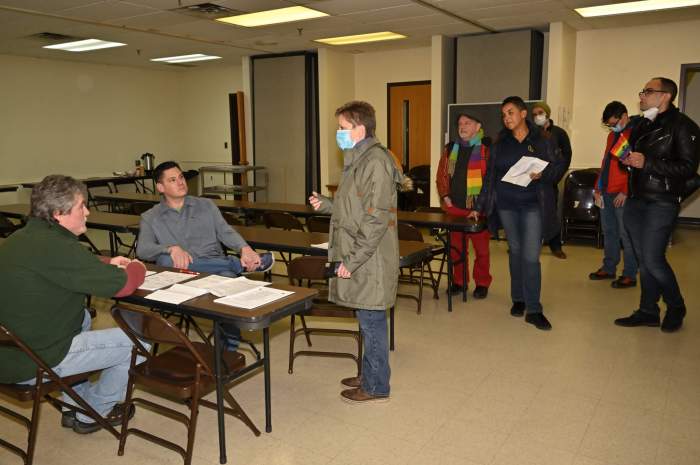Volume 81, Number 8 | July 21- 27, 2011
West and East Village, Chelsea, Soho, Noho, Little Italy, Chinatown and Lower East Side, Since 1933 With the City Council soon to vote on whether to approve the formation of the Chinatown Business Improvement District, we would like to register our strong support for a yes vote on the BID We believe that the Chinatown BID will lead to an improved quality of life for the district’s businesses and residents — as well as tourists, who frequently go out of their way to travel to a neighborhood that has an identity unlike any other. As the City Council vote approaches, some renewed contention among neighborhood property owners and entrepreneurs is stirring. BID opponents have suggested vague alternatives, such as hiring companies or nonprofit organizations to provide sidewalk cleaning and other community services. Others feel that more stringent enforcement of existing regulations is the real solution.
Some feel that the BID is an unnecessary evil — a gentrifying force and added layer of bureaucracy that will stifle dissent among neighborhood constituents and cause the community’s beloved mom-and-pop stores to close due to escalating rents and property taxes. But the fact of the matter is that other grassroots efforts, such as the Council for a Cleaner Chinatown, ultimately failed primarily due to not being connected to a hardwired and secure source of funding, like a BID. And increases in rents and taxes are a citywide phenomenon, regardless of BID presence. Chinatown would also receive $1.9 million in government funds — a considerable financial reward — if and only if a BID is created. This is important leverage that the BID will bring into being. BIDs have withstood the test of time. There are 64 BIDs citywide, none of which has ever been dismantled, which is a testament to their success. They’re known to generate revenue for struggling communities, make them more appealing tourist destinations, and otherwise nurture their districts’ attractiveness and vitality. BIDs have a positive impact on the value of commercial property. Finally, we trust the judgment on this issue of Councilmember Margaret Chin, a longtime resident and advocate of Chinatown and a founder of several community initiatives, such as Asian Americans for Equality (AAFE) and the Chinatown Partnership Local Development Corporation. Chin has deep experience of everyday life in the neighborhood and has witnessed the day-to-day operations of merchants and property owners. Her mother is a retired garment worker who still resides in Chinatown, where Chin was raised. The councilmember intimately understands the needs of her constituents and her neighborhood.
If there is any person who has the knowledge of just what a BID would mean to the neighborhood, it is Councilmember Chin, and we support her efforts to shepherd the BID through to fruition.
We ask those who are opposed to the BID to continue to voice their concerns: A thriving democracy is a necessary vehicle for healthy change in any community. In turn, we ask the BID’s future board of directors to take into account the opponents’ concerns in an effort to best represent all the voices of the community.Editorial
Back Chinatown BID































